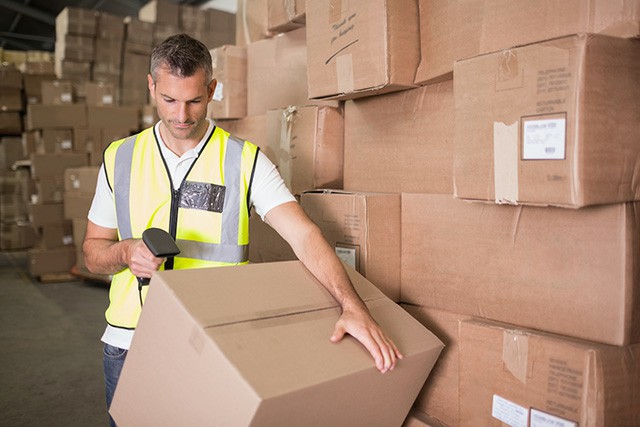
Moving house is the third most stressful life event humans ever experience, according to the Employee Relocation Council. Only death and divorce are more challenging, yet the average person moves 11.4 times during the course of their life. Nerves fray at the best of times, but when you're moving overseas and are concerned about whether your possessions will join you, stress levels are bound to soar. However, if you follow this advice, you can feel confident your items will clear customs without fuss.
Don't Pack Restricted Items
It sounds like a no-brainer, but it's important to keep restricted items out of your moving boxes. The restricted items will depend on your destination, so make sure you do your research on the government or customs website of your new home. If you can't easily find this information, the local consulate of your new home will be able to assist you.
Some countries don't have banned products but instead ask new residents to declare questionable goods. Others have restricted products, which may include alcohol, narcotics, firearms, pornographic material, or political literature.
If you pack a restricted item, it's likely to hold up all of your possessions at customs, not just the item in question, so when in doubt, err on the side of caution.
Make Your Goods Presentable
Even seemingly inoffensive goods can cause alarm if they're not presented right. Think muddy sneakers, pillows covered in cat hair, or a wet fishing tackle box. All of the items you're transporting should be clean and dry. Look for soil, animal hair, plant debris, and standing water and remove them before you depart.
Wooden goods and foodstuffs must generally be declared, but that doesn't mean customs will refuse them. If you can't bear to part with that wooden carving you love, check you can't see any holes, sawdust, or other signs of insect infestation. If you do, treat it for pests before you leave. If you're worried your new home won't have your favorite brand of cereal or other foodstuffs, make sure you only pack new, sealed boxes or containers.
Create a Detailed Inventory
Many of the world's customs agencies require a comprehensive inventory of the items you've sent abroad. Movers will take care of the inventory for any items they're packing, but it's up to you to list items you're packing yourself. If your inventory isn't complete, you may face additional fees and lengthy delays at customs.
Make your inventory as detailed as you can. Include the make, model, and serial number of any appliances or electronic items. Indicate the sizes of goods where applicable and the number of generic items like towels or bed sheets. Grouping like items, such as clothing, books, toys, DVDs, and CDs, will make your inventory easier to read.
Most customs agencies require an inventory in their national language, so if you're moving to a non-English speaking country you may need your inventory translated before your departure. Keep a copy of the inventory for yourself and provide another copy to your moving company.
Take Care of Customs Forms
Every person who sends their possessions overseas to collect on their arrival must complete a customs form. This form will vary according to the country you're relocating to. You should be able to obtain one from the government or customs website of your destination or your customs broker. It should be completed in full by the owner of the goods sent or a nominated representative, such as a customs broker, freight forwarder, or a trusted friend or relative.
Carefully complete the form, ensuring all questions are answered truthfully and in full. The form can be submitted to a customs office in your destination once your goods are ready for collection. Alternatively, ask your removalists, customs broker, or freight forwarder to lodge it on your behalf. Your goods cannot be collected without this form, so ensure it's complete to avoid lengthy delays.
Make Sure You Have Everything You Need to Collect Your Goods
Your customs form isn't the only thing you'll need to collect your cleared goods. You'll also need that detailed invoice, an arrival notice, delivery advice, or air waybill, depending on whether your goods arrived by air or sea, and sufficient evidence of your identity.
You'll likely need to present a primary form of identification, such as a valid or recently expired passport or your birth certificate. Supplementary forms of identification, such as a letter from your employer, a utility bill, or a driver's license, may also be required.
It can be difficult for new residents to gather the identification they need, as most documents must come from their new home. It's smart to consider what identification is needed and take the necessary steps to obtain them on arrival to ensure your goods can be released in a timely fashion. For example, if you're moving to Australia, you'll need to provide identification worth at least 100 points. Other countries have their own identification systems, which can be found on customs and government websites.
If you're struggling to gather enough identification, it can be smart to nominate a family member or friend based in your new home to collect the goods on your behalf. Only the person collecting the goods must prove their identity, even if they do not own the property.
You should also make sure you have sufficient funds on hand to cover any port fees, handling charges, or taxes your goods have incurred. Customs will not release your goods until payment is made.
Consider these tips, and you can feel confident your prized possessions will clear customs when you're moving overseas.
Moving to or from Australia?
Chess Moving provides a comprehensive number of international moving and removal services. Contact us today.